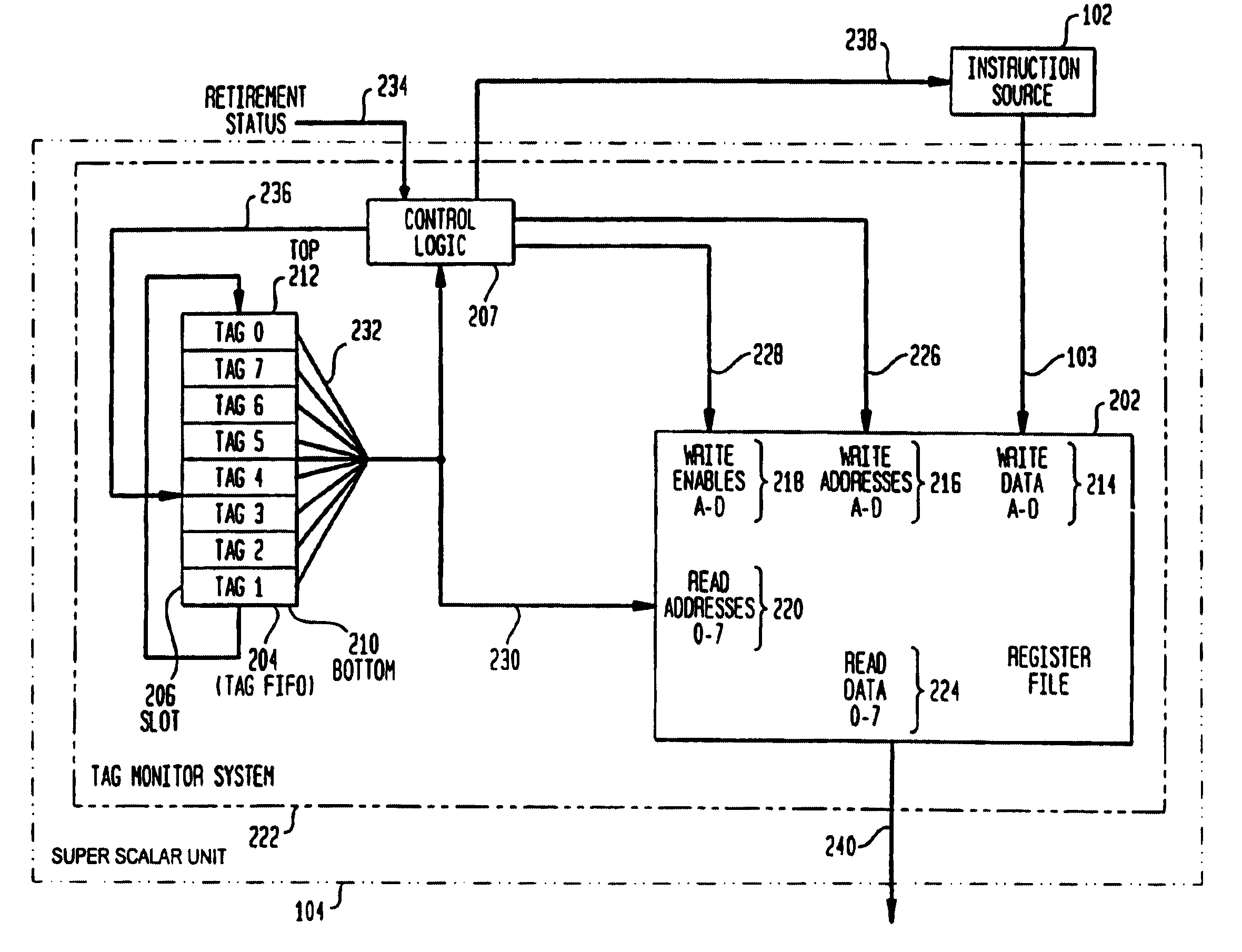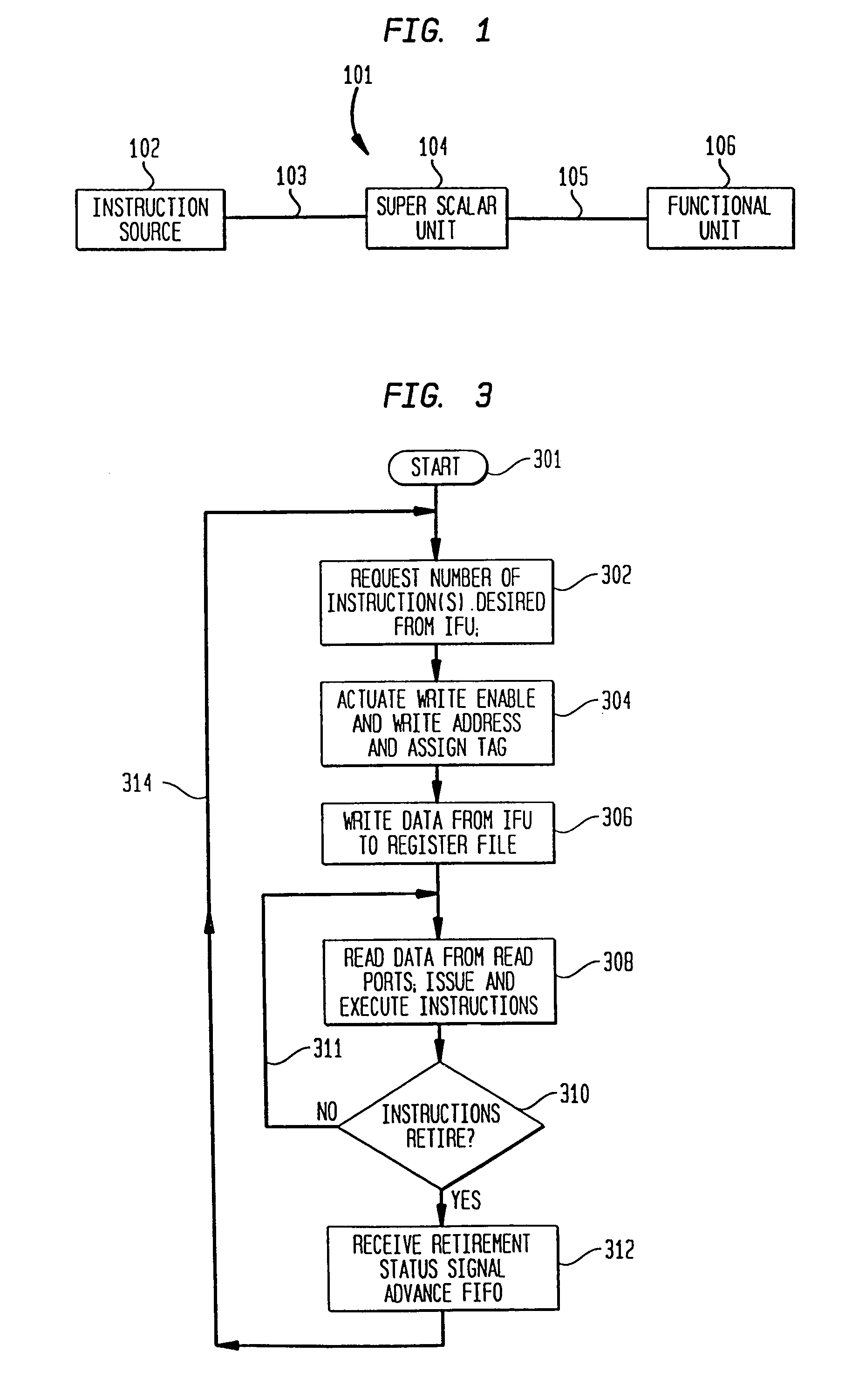System and method for assigning tags to control instruction processing in a superscalar processor
a superscalar processor and instruction technology, applied in the field of superscalar computers, can solve the problems of inability to look ahead beyond the instructions with conflict or dependency, inability to execute instructions which use the result produced by the execution of another instruction at the same time as the other instruction, and disadvantageous use of queues, so as to increase operational flexibility and simplify design
- Summary
- Abstract
- Description
- Claims
- Application Information
AI Technical Summary
Benefits of technology
Problems solved by technology
Method used
Image
Examples
Embodiment Construction
1.0 System Environment
[0039]FIG. 1 is a block diagram of a superscalar environment 101. Superscalar environment 101 includes: an instruction source 102, a superscalar unit 104 and a functional unit 106. Superscalar unit 104 controls the execution of instructions by functional unit 106. Functional unit 106 may include a floating point unit (not shown), an integer unit (not shown), a load / store unit (not shown) and other such hardware commonly used by processors depending on the desired application.
[0040]Specific implementations of instruction source 102 and functional unit 106 would be apparent to a person skilled in the relevant art.
[0041]Instruction source 102 sends instruction information to superscalar unit 104 via a bus 103. The superscalar unit 104 then issues the instructions to functional unit 106. Generally, superscalar unit 104 monitors functional unit 106 availability and checks for dependencies between instructions. Once the instructions are completed, instruction source ...
PUM
 Login to View More
Login to View More Abstract
Description
Claims
Application Information
 Login to View More
Login to View More - R&D
- Intellectual Property
- Life Sciences
- Materials
- Tech Scout
- Unparalleled Data Quality
- Higher Quality Content
- 60% Fewer Hallucinations
Browse by: Latest US Patents, China's latest patents, Technical Efficacy Thesaurus, Application Domain, Technology Topic, Popular Technical Reports.
© 2025 PatSnap. All rights reserved.Legal|Privacy policy|Modern Slavery Act Transparency Statement|Sitemap|About US| Contact US: help@patsnap.com



